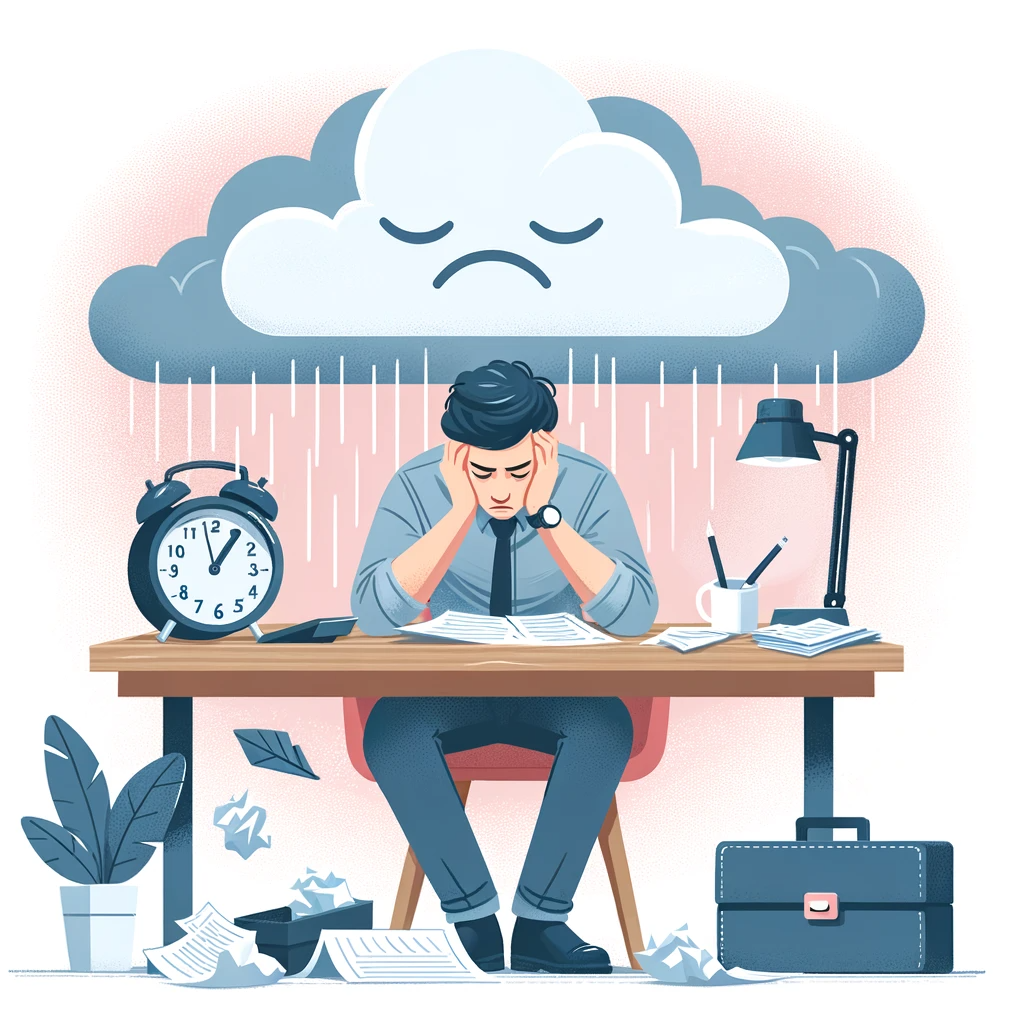Troubled
Definition
Troubled refers to someone or something experiencing distress, disturbance, or difficulty.
Parts of Speech
- Adjective
- Verb (past tense of "trouble")
Pronunciation
American English
- IPA Pronunciation: /ˈtrʌbəld/
- Respelling: TRUH-buhld (with "TRUH" as in "truck" and "buhld" as in the ending of "rebuilt")
British English
- IPA Pronunciation: /ˈtrʌbld/
- Respelling: TRUH-bld (similar to American English, with "TRUH" as in "truck" and "bld" as a shorter version of the ending in "rebuilt")
In both dialects, "troubled" is pronounced with the primary stress on the first syllable "TRUH." The word starts with "TRUH," akin to the beginning sound in "truck." In American English, the ending "buhld" is more pronounced, while in British English, it is often shorter, resulting in "bld." The pronunciation is similar in both dialects, with the main difference in the length of the last syllable.
Etymology
Derived from the Middle English word "trouble", which itself comes from Old French "trouble", possibly based on the Latin word "turbidus", meaning "muddy", from "turba", meaning "turmoil".
Derivatives
- Troubledly (adverb)
- Troubledness (noun)
- Troubler (noun)
- Troublesome (adjective)
- Troubling (verb)
Synonyms
- Distressed
- Perturbed
- Agitated
Antonyms
- Calm
- Peaceful
- Untroubled
Usage
- "He had a troubled look on his face after hearing the news."
- "The region has been troubled by political instability for years."
Related Terms
- Disturbance
- Upset
- Disquiet
- Concern
- Agitation
Detailed Definition
Adjective
- Experiencing Distress or Difficulty: Being in a state of distress, worry, or discomfort.
- Example: Her troubled childhood had a profound effect on her adult life.
- Causing Concern or Problem: Leading to worry or causing problems or difficulties.
- Example: The country's troubled economy led to widespread protests.
Verb (past tense of "trouble")
- Caused Distress or Worry to: To have caused someone to experience worry or discomfort.
- Example: The constant noise troubled him, preventing a good night's sleep.
- Caused Difficulty or Problem for: To have created a problem or difficulty for someone or something.
- Example: Technical issues troubled the launch of the new software.
troubled



🇨🇳 Mandarin
- 忧虑的 (yōulǜ de)
- IPA: /joʊ̯˧˥ lʏ˨˩˦ də˧˥/
- Respelling: you-lu de
- 困扰的 (kùnrǎo de)
- IPA: /kʰwən˨˩˦ ɻau˨˩˦ də˧˥/
- Respelling: kwen-rao de
🇮🇳 Hindi
- परेशान (pareśān)
- IPA: /pəˈreːʃaːn/
- Respelling: pa-re-shaan
🇪🇸 Spanish
- Preocupado
- IPA: /pɾeokuˈpaðo/
- Respelling: pre-o-cu-pa-do
- Atormentado
- IPA: /atoɾmenˈtado/
- Respelling: a-tor-men-ta-do
🇫🇷 French
- Tourmenté
- IPA: /tuʁ.mɑ̃.te/
- Respelling: tour-man-tay
- Inquiet
- IPA: /ɛ̃.kje/
- Respelling: an-kie
🇸🇦 Modern Standard Arabic
- مُضطرب (muḍṭarib)
- IPA: /muːdˈtˁarib/
- Respelling: moo-dtarib
🇧🇩 Bengali
- বিপর্যস্ত (biparyasta)
- IPA: /bipɔrjɔst̪ɔ/
- Respelling: bipor-yos-to
🇷🇺 Russian
- Беспокойный (Bespokoyny)
- IPA: /bʲɪspɐˈkojnɨj/
- Respelling: bes-po-koy-ny
- Тревожный (Trevozhnyy)
- IPA: /trʲɪˈvoʐnɨj/
- Respelling: tre-vozh-ny
🇵🇹 Portuguese
- Preocupado
- IPA: /pɾe.o.kuˈpa.ðu/
- Respelling: pre-o-cu-pa-doo
- Atormentado
- IPA: /ɐ.toɾ.menˈta.ðu/
- Respelling: a-tor-men-ta-doo
🇮🇩 Indonesian
- Cemas
- IPA: /ʧə'mas/
- Respelling: che-mas
🇩🇪 German
- Beunruhigt
- IPA: /bɔʏnˈʁuːɪkt/
- Respelling: boyn-roo-ikt
- Gestört
- IPA: /ɡəˈʃtøːɐ̯t/
- Respelling: ge-shtoert
🇯🇵 Japanese
- 悩む (nayamu)
- IPA: /na.ja.mu/
- Respelling: na-ya-mu
🇻🇳 Vietnamese
- Lo âu
- IPA: /lɔ ʔaw/
- Respelling: lo aw
🇰🇷 Korean
- 고민된 (gomin doen)
- IPA: /ɡo.min dwen/
- Respelling: go-min dwen
🇹🇷 Turkish
- Endişeli
- IPA: /enˈdiʃeli/
- Respelling: en-dish-e-li
- Rahatsız
- IPA: /rahˈsat͡sɯz/
- Respelling: rah-satz-uz
🇵🇰 Urdu
- پریشان (pareśān)
- IPA: /pəˈreːʃaːn/
- Respelling: pa-re-shaan





